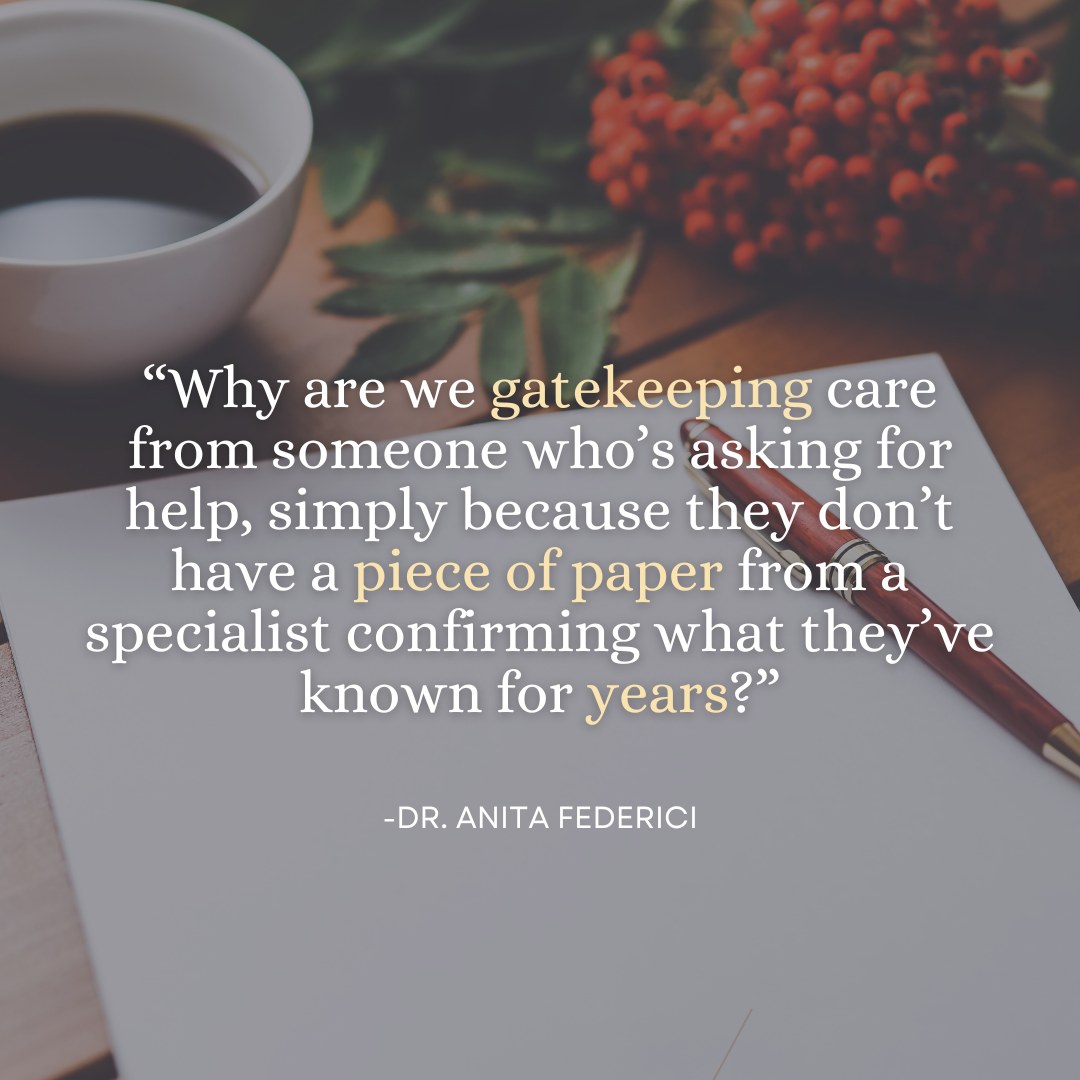Written by Dr. Anita Federici
With everything we now know about GI distress, gut-brain interactions, neurodiversity, and neurometabolic factors in eating disorders, can someone explain why hospitals are still requiring a formal allergy diagnosis from a specialist before allowing an individual to access care?
I’m talking about people who are trying to access a program — who report a long personal and family history of food allergies— and yet are told they can’t enter treatment without a specialist’s confirmation. Really?
I remember the early 2000s, when ED programs wouldn’t accommodate any dietary deviation. No vegan options. No cultural preferences. No food allergies unless medically certified. It was all seen as part of the eating disorder. The gold standard was full exposure to a “standard meal plan” with all feared foods. That was considered recovery.
But haven’t we learned so much since then?
Didn’t Cynthia Bulik’s groundbreaking genome research teach us about metabolic and genetic differences in EDs?
Didn’t Nancy Zucker and Bulik’s work show us how unsettled biologies and gut discomfort can inform how we feed and support recovery?
Haven’t we deepened our understanding of neurodiversity, including the co-occurrence of autism and sensory sensitivities that affect eating, learning, and tolerating discomfort?
Didn’t all the DEI work challenge the assumption that a Western/Mediterranean meal plan is the only (or best) way to nourish people—especially in a global, multicultural world?
And hasn’t Jenny Thomas and her colleagues’ work on ARFID taught us how hormonal and metabolic differences can affect hunger, fullness, and even food-related pain and allergy?
So, again, why are we gatekeeping care from someone who’s asking for help, simply because they don’t have a piece of paper from a specialist confirming what they’ve known for years?

